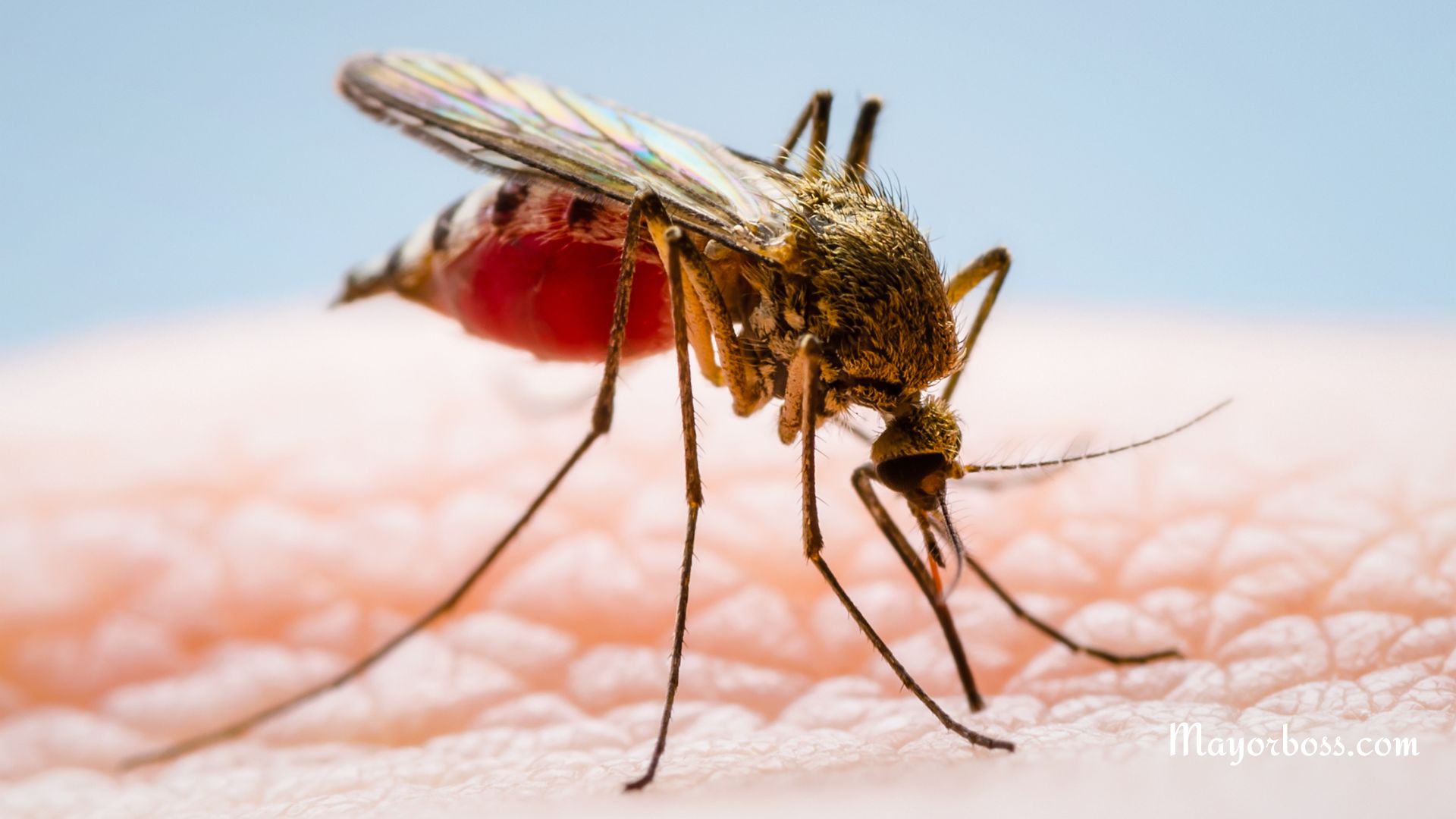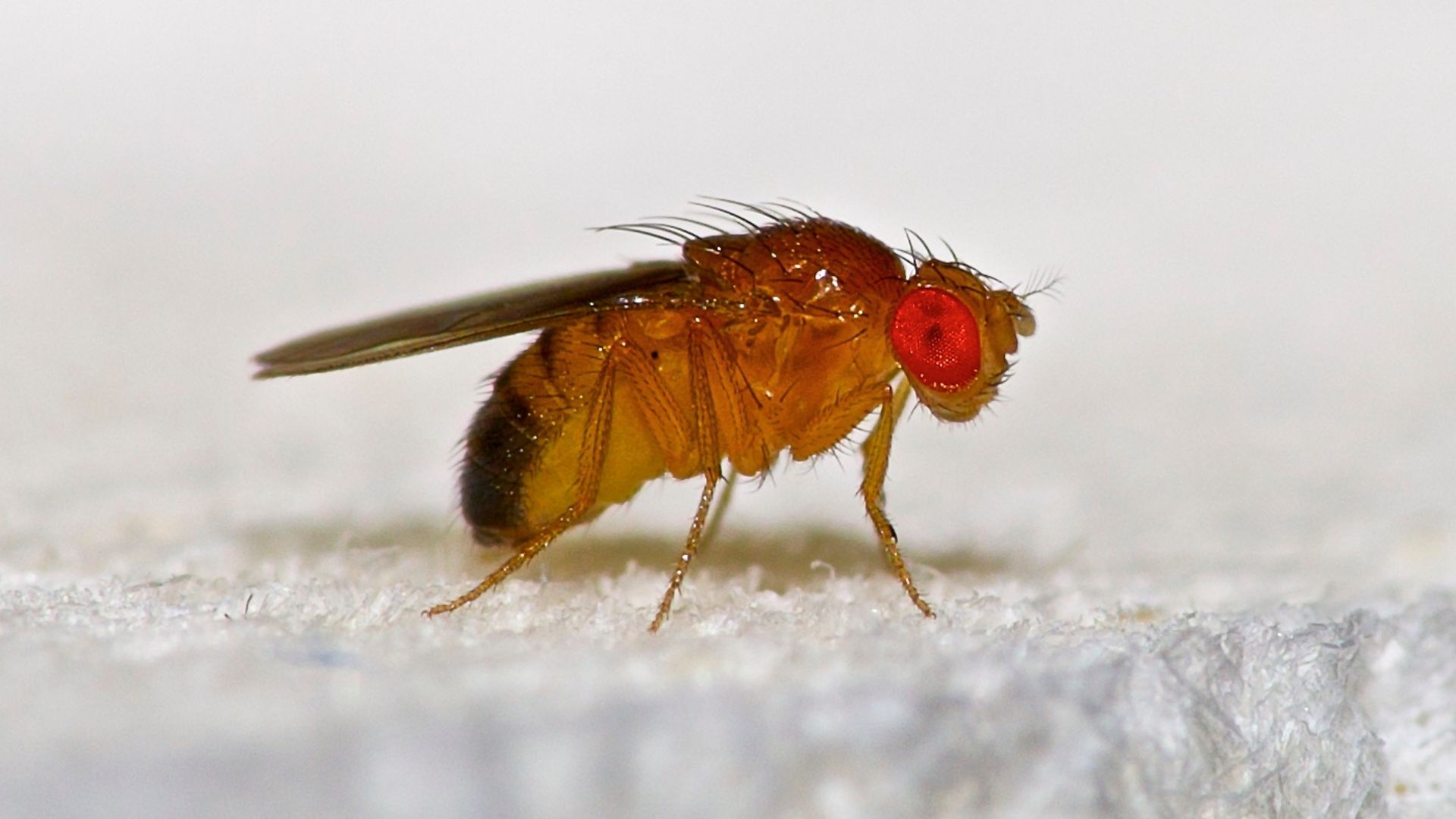5 House Plants Scientifically Proven To Reduce Anxiety and Depression
Living in an increasingly fast-paced and high-stress world, it’s essential to find ways to help manage feelings of anxiety and depression. As Dr. Mayor Boss, a Ph.D. holder in Pharmaceutical Sciences, emphasizes, “It’s crucial to explore various methods to promote our mental health.” One surprising but effective way involves bringing a bit of nature into your home. Let’s dive into the science behind how certain houseplants can help reduce anxiety and depression.
Why House Plants?
House plants do more than just beautify our living spaces. They play an active role in promoting our mental well-being. From a psychological perspective, caring for plants can offer a significant sense of purpose and accomplishment, which can be therapeutic for individuals dealing with mental health issues.
Furthermore,” Dr. Boss notes, “plants have a calming effect and help to create a soothing environment, which can reduce feelings of stress.
House Plants that Help Reduce Anxiety and Depression
Now, let’s look at five specific house plants that have been scientifically proven to help reduce anxiety and depression.
Aloe Vera
Generally, aloe Vera is well-known for its significant healing properties when applied to the skin. However, it can also benefit your mental health by purifying the air. The plant absorbs pollutants found in the air, enhancing the overall air quality in your home.
“The cleaner the air, the better you can breathe, and ultimately, the calmer you will feel,” says Dr. Boss. “Aloe Vera is a fantastic addition to any household for both its physical and mental health benefits.”
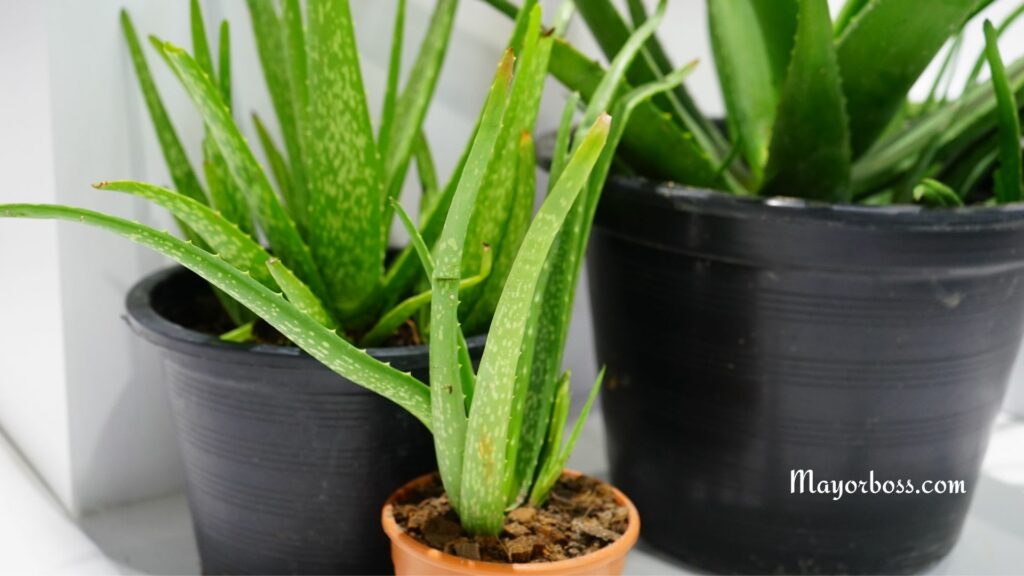
Spider Plant
In particular, the Spider Plant is another excellent choice for air purification. A study by NASA found that this plant can get rid of 90% of toxins in the air within two days. The plant’s ability to cleanse the air of toxins, combined with the added oxygen it provides, can help create a tranquil environment.
Dr. Boss adds, “Remember, our environment plays a significant role in our mental well-being. A Spider Plant can contribute to a cleaner, more calming atmosphere at home.”
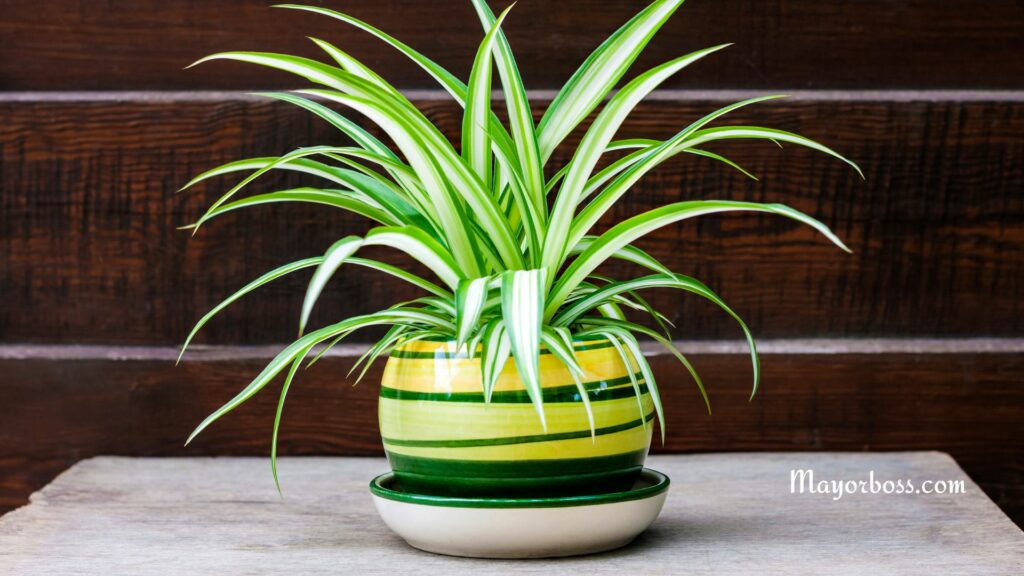
Lavender
The calming fragrance of Lavender is often used in aromatherapy to reduce stress, anxiety, and even mild pain. Having this plant at home means having a natural stress reliever within your reach.
Lavender’s calming scent can help create a relaxing environment conducive to sleep and relaxation,” Dr. Boss explains. Having one in your bedroom could improve your sleep quality, which is crucial for mental health.
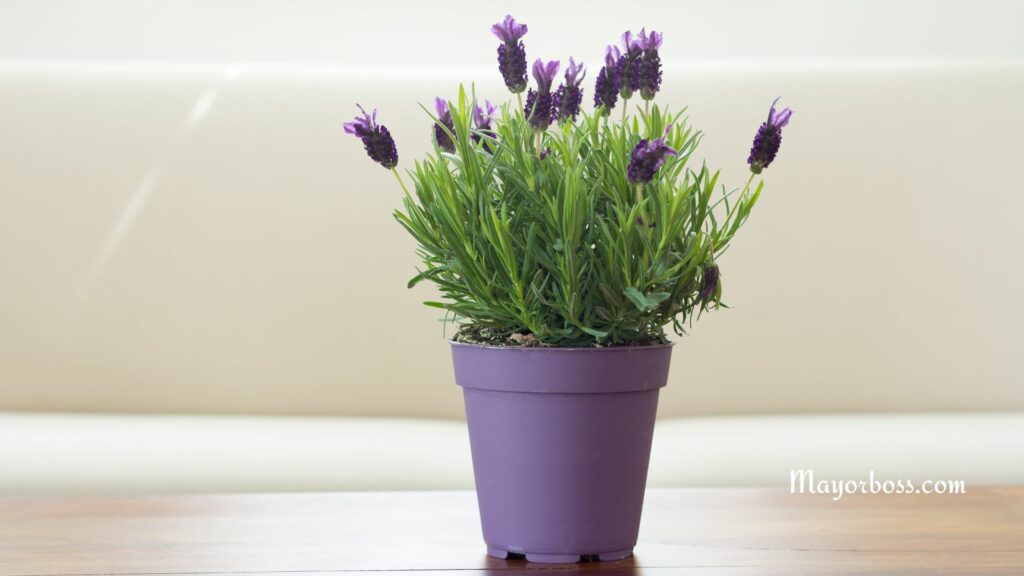
Snake Plant
Snake Plants are low-maintenance plants known for their ability to improve air quality. They release oxygen at night (while most plants do so during the day), contributing to a better sleeping environment.
“A good night’s sleep is vital in managing anxiety and depression,” says Dr. Boss. “The Snake Plant aids in providing that by improving the air quality during your sleeping hours.”
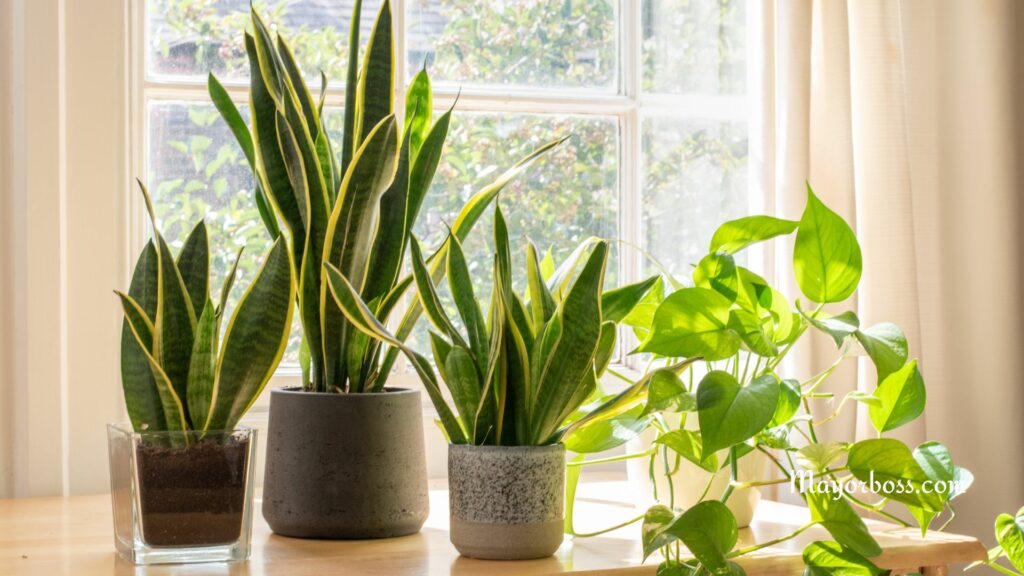
Peace Lily
The Peace Lily, with its beautiful white flowers, can improve indoor air quality by as much as 60%, according to NASA’s research. This plant helps to lessen the amount of mold tiny spores by absorbing them through its leaves and circulating them to the plant’s roots, where they’re used as food.
“By reducing mold in the air, the Peace Lily can contribute to a healthier and less stressful indoor environment,” Dr. Boss points out.
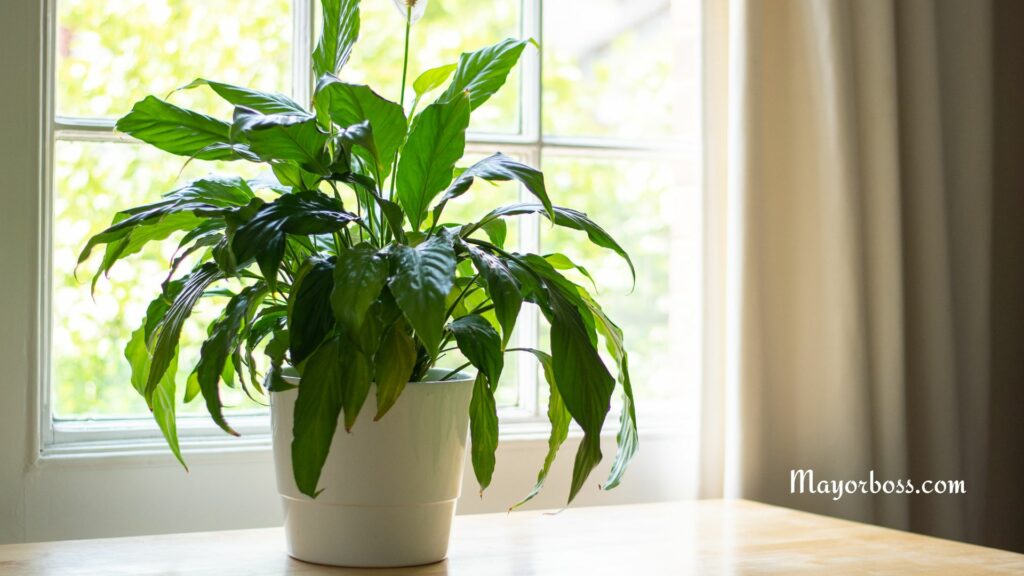
The Bigger Picture
In conclusion, incorporating house plants into your living space can have a significant impact on reducing feelings of anxiety and depression. However, it’s important to remember that while these plants can contribute to your mental well-being, they’re not a standalone solution for mental health issues.
As Dr. Boss aptly puts it, “House plants can serve as one aspect of a holistic approach to managing anxiety and depression. But if you’re struggling, it’s crucial to seek professional help and discuss your feelings with a healthcare provider. Remember, it’s okay to ask for help.”
Adding a bit of greenery to your indoor space is a step towards creating a more calming, healthier environment at home. So, why not start today? Choose a plant that resonates with you, care for it, and let it do its part in caring for your mental health.
Further Reading: 7 Easiest Houseplants That Anyone Can Grow

